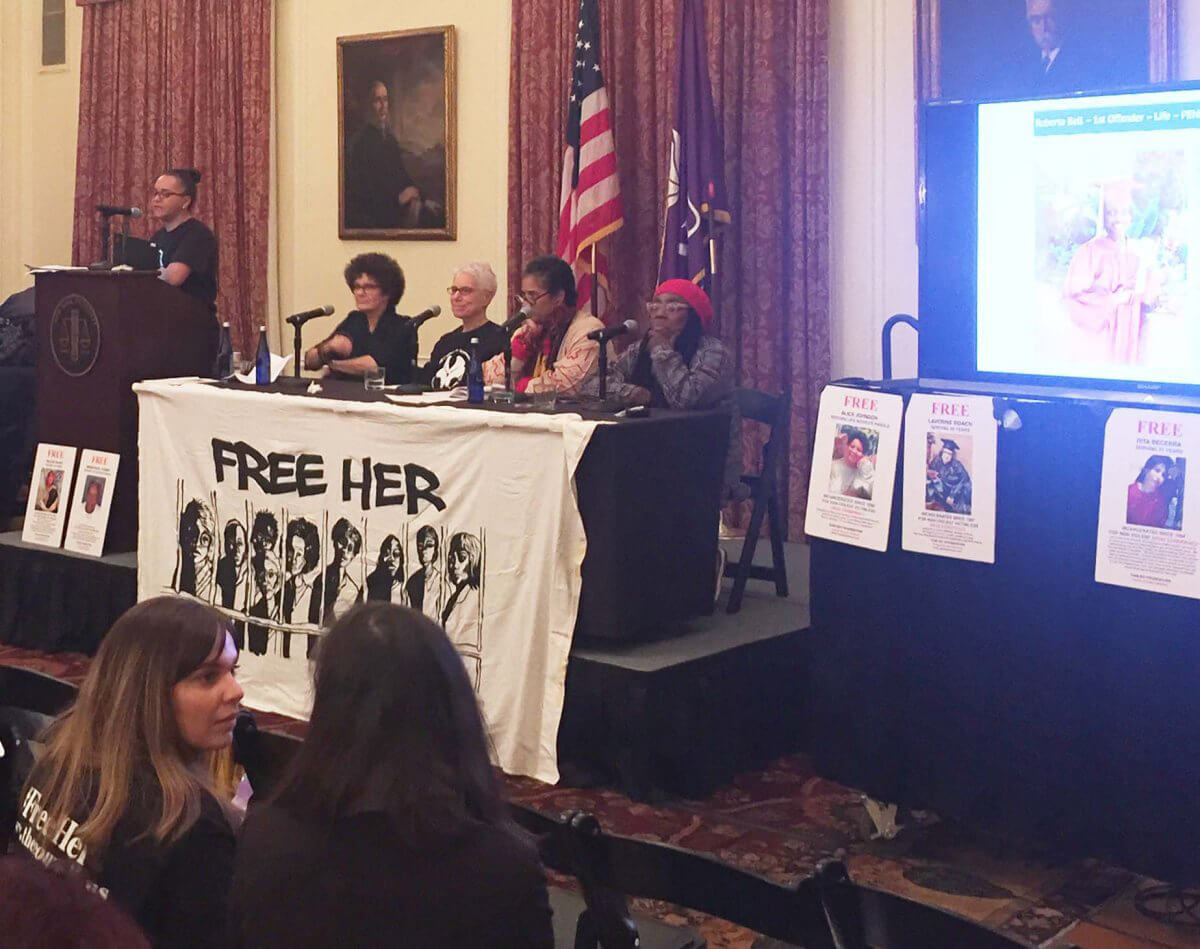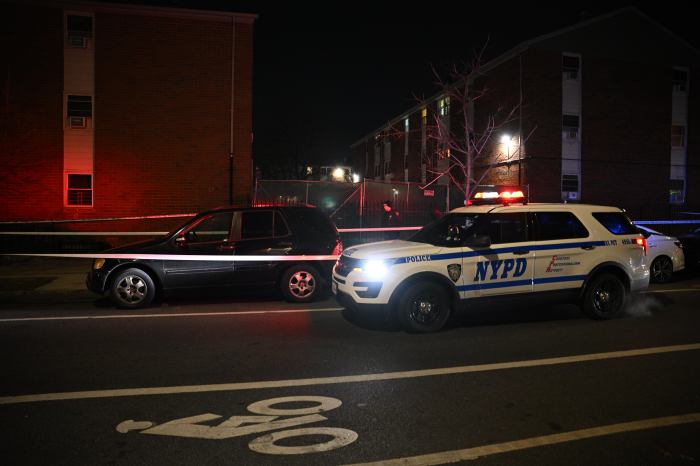By Patrick Donachie
Advocates for incarcerated and formerly incarcerated women vowed to continue pushing for clemency for women imprisoned on non-violent drug offenses despite the ‘law-and-order’ stance of the new presidential administration, according to speakers at a forum sponsored by the National Council for Incarcerated and Formerly Incarcerated Women and Girls.
The “Real Women Real Voices” symposium, held in Vanderbilt Hall at New York University’s Law School Jan. 25, brought together formerly incarcerated women to share their stories and views on panel discussions. The evening also included phone calls from two women currently serving time in prison.
Andrea James, the council’s executive director, said she hoped the symposium would be a call for action for the attendees, particularly the law students in the audience who may end up as prosecutors.
“We wanted to talk about the policies, as the experts in this field,” she said. “We are working to create a system that is based on human justice.”
James founded the council in December 2015 to advocate for women in and out of prison. She also founded Families for Justice as Healing and was a 2016 recipient of the Robert F. Kennedy Human Rights Award.
Espousing the motto “nothing about us without us,” the council wants to ensure that incarcerated and formerly incarcerated women’s voices are included in the debate over prison reform.
The council currently involves more than 1,000 women in and out of prison, with chapters in 22 states, and forum attendees came from as far away as Oakland, Calif., and Atlanta, Ga., according to Topeka Sam, the council’s national director.
At one point, the council set up a video chat with Alice-Marie Johnson, 61, who is currently serving a life sentence for a nonviolent drug offense.
Having served more than 20 years of her sentence, she originally asked President Barack Obama to grant her clemency as a part of his Clemency Project 2014, but was denied, nor was she among the more than 200 commutations Obama issued during his last week in office.
Johnson acknowledged that she made “terrible choices” more than 20 years before, but said her choices in prison had been far different. Johnson said she had an exemplary conduct record in prison and her clemency request had the support of the warden, prison staff and three members of Congress.
She expressed sorrow for those inmates “who are languishing in prison, whose dreams have been shattered, whose hopes have turned to hopelessness, whose tears could fill a river.”
But Johnson renewed her commitment to continue fighting for clemency despite the disappointment that she was unsuccessful with President Obama.
“So many people are quick to say, ‘you do the crime, you do the time.’ But that time should be just and fair,” she said. “There’s no middle way on justice’s highway. You have to pick a side.”
The council and other organizations advocate for clemency for inmates like Johnson, and James said it was important to keep fighting, because sometimes their efforts are successful. She pointed out Ramona Brant, a panelist who had been granted clemency by Obama in 2015.
“We used to carry Ramona’s picture with us around the country,” James said. “Now we carry Ramona.”
Brant was arrested in 1993 in North Carolina and charged with conspiracy — a conspiracy Brant said began long before she even arrived in the state. She received clemency in Dec. 2015 and later met with Obama to speak about issues surrounding mass incarceration, such as housing discrimination against former inmates.
Like many throughout the evening, Brant expressed worry about what the Trump administration would mean for women and girls still incarcerated, but she said she was determined to remain optimistic.
“We hope something good will come out of this administration,” she said. “I doubt it, but you’ve got to believe in the unbelievable.”
Reach reporter Patrick Donachie by e-mail at pdona




































